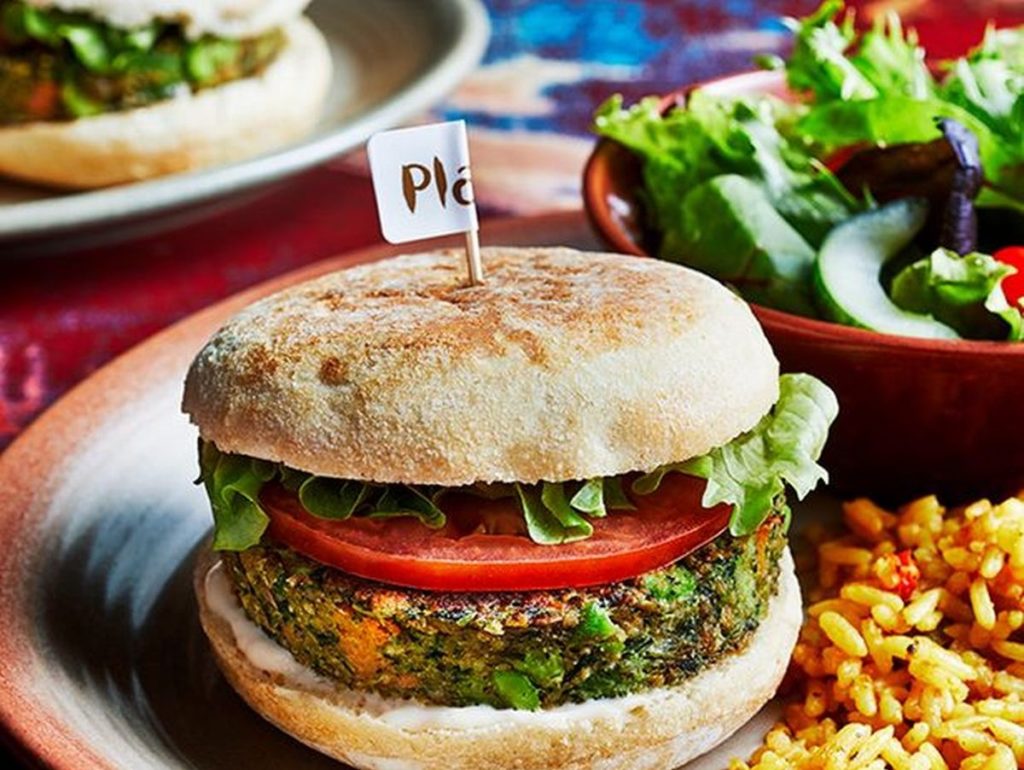With the big farming lobbies in the midst of a ferocious battle to ban ‘meaty’ and ‘dairy-type’ names on the labels of plant-origin foods, should we consider labelling animal products to reflect their true origins – living, or once-living, sentient beings?
The farming lobbies’ latest effort to suppress labelling terms on plant-origin foods is an attempt to divert public attention from the iniquities its industry imposes on billions of EU farm animals.
The majority of farmed animals exist in the bleak misery of factory farms, either caged or confined in often overcrowded, dingy, barren sheds. Mutilations are a standard part of factory farming: While fully conscious, hundreds of millions of new-born piglets each year have part of their tails sliced off, and hens are subjected to painful beak-trimming. Female animals suffer forced impregnation; ducks and geese are force-fed; maternal deprivation is inherent in the system. These privations result in high levels of stress and suffering for the animals, who often will face further suffering at slaughter.
In the face of this knowledge and on climate, environment, sustainability and human health grounds, EU citizens are increasingly interested in foods of plant origin.
And in the bleak outlook, there is some light: The European Green Deal with the Farm to Fork and Biodiversity Strategies could bring green shoots of hope for a more sustainable and healthy food system.
Yet on 20-21 October the European Parliament will vote on anachronistic proposals which, if adopted, would undo these tentative steps to a more balanced world, in favour of the status quo and vested interests.
Two amendments from the Parliament’s Agriculture Committee would ban use of widely accepted terms such as ‘veggie burger’ and ‘vegan sausage’ to describe plant-based alternatives to meat.
‘Butter substitute’, ‘alternative to cheese’ and other such descriptions of plant-based dairy alternatives, which are already regulated, would also be prohibited.
We find ourselves in the awkward position of having MEPs regulate the words we’ve been using for years to describe common food items in the supermarket shelves for the benefit of a sector that lives by, yet refuses to acknowledge, consumer preferences.
In view of the above, do common words for animal products need updating to reflect their true origin? Should meat, for example, be named ‘Flesh from a once-living sentient animal’?
When one is made aware of the facts about the routine, painful mutilation of millions of EU farmed animals, the meaty term ‘cuts’ takes on a whole new meaning.
Should cows’ milk be named ‘product of the mammalian reproductive system’ and eggs as ‘products of hens’ reproductive organs’?
This would not be expected, but it is no more ludicrous than the plan of the die-hard factory farming industry.
It is surely also long past time that red and processed meat carried a health risk warning on its labels.
The proposed ‘bans’ also risk smothering the fast-growing demand for plant-based alternatives to meat and dairy. Big Ag’s plan for market distortion in favour of products of the factory farm does not do their fellow EU farmers in arable and horticulture any favours.
Others are presumably also raising their eyebrows, such as multinationals traditionally focused on meat protein but who are seizing the market opportunities of plant protein, and EU food businesses importing plant-based processed foods.
Those behind the plan claim that consumers are confused. This is not born out by shopping habits, and a recent survey by the European consumer organisation BEUC shows that a large majority of consumers — over 68% — support the use of terms such as ‘sausages’ and ‘burgers’, previously widely applied to meat products, for plant-based food products, as long as they are clearly labelled as vegetarian or vegan.
Consumers understand that a ‘plant-based steak’ doesn’t come from a cow, just as no-one expects peanut ‘butter’ to come from sheep. The confusion on common terms for certain foods does not lie with consumers. There is simply no justification for restricting the use of terms like ‘burger’, ‘steak’ or ’yoghurt-style’ to animal products, as the Agriculture Committee amendments propose.
The plant-based food sector is having a phenomenal growth, gaining market share. At the same time, there is growing scientific evidence on the urgent need for a shift in diets and consumers are starting to acknowledge this. The farming sector knows full well it must adapt. At this opportune time, however, we witness an extreme reaction to restrict any attempt from others to have equal access to consumers, which the animal farming industry has been enjoying for many decades.
The European Parliament has a well-deserved reputation for taking progressive positions in areas such as consumer policy, public health, sustainability, and animal welfare. It should burnish that reputation again by rejecting the absurd and outdated proposals that only serve the interests of those wishing to ‘preserve’ their domination in the food market for eternity.
By Olga Kikou
Head of the EU office of the farm animal welfare NGO Compassion in World Farming


